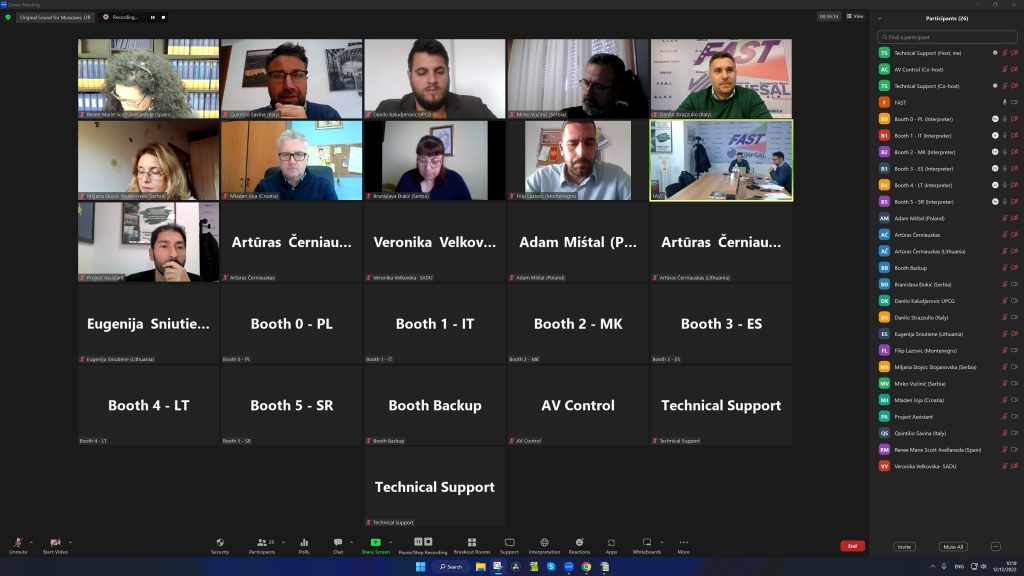Kick off meeting
12.12.2022
On December 12, 2022, the online Kick-off meeting of the “New Normal” project took place. The project focused on workers’ rights to information, consultation, and participation in dealing with the impact of COVID-19 on production processes. Dr. Quintilius Savina mediated the meeting.
The meeting aimed to discuss organizational issues, identify main problems, create a network, and plan actions to disseminate the project’s results. Workers’ and employers’ organizations participating in the project were invited to give brief presentations about their organizations.
An overview of the project’s context was presented, which was the global COVID-19 crisis. The crisis led to a significant reduction in demand for transportation due to government-imposed restrictive measures such as lockdowns, business closures, remote work, and event cancellations. This reduction in demand had a negative impact on employment in the transportation sector. The project aimed to understand the role of workers in gradually restoring normal production.
The project was divided into several phases, including the Kick-off meeting, research activities through surveys, interviews, and focus groups, preparation of a national report with research results, an international event to present and compare research data, development of a guide on workers’ rights, and online follow-up events to share implementation practices.
The research methods for producing comparable results were described. The discussion also addressed the presence of trade union representatives in production plants, highlighting challenges in achieving effective social dialogue in private companies, particularly in small family-run businesses. In Italy, strong trade union protection legislation, such as the “Workers’ Statute” (law n. 300/1970), contributed to significant trade union emancipation.
Regarding worker participation during the ongoing COVID-19 situation, good practices were highlighted, such as the development of workplace prevention protocols by public institutions and employers’ organizations. Different forms of participation intensity were discussed, ranging from weak (information and consultation) to strong (employee share ownership, union representation on boards of directors).
Social dialogue and the legal personality of trade unions varied among countries, affecting the effectiveness and scope of contractual agreements. Some countries developed mechanisms to compensate for the lack of legal personality of trade unions.
The meeting concluded with advice to project members on conducting research activities according to the guidelines.

Funded by the European Union. Views and opinions expressed are however those of the author(s) only and do not necessarily reflect those of the European Union. Neither the European Union nor the granting authority can be held responsible for them.
